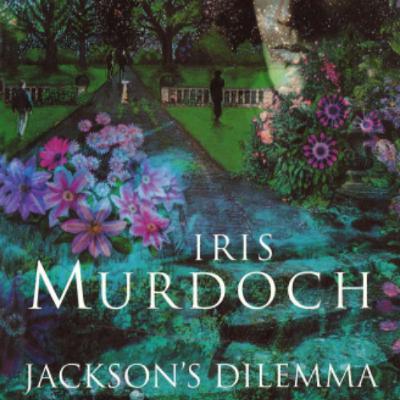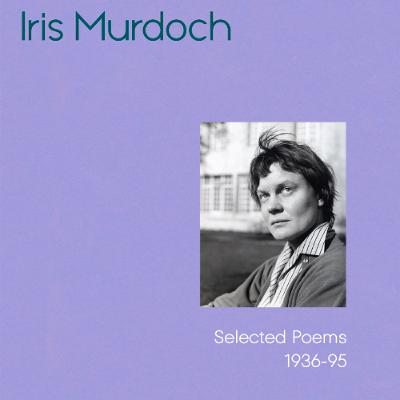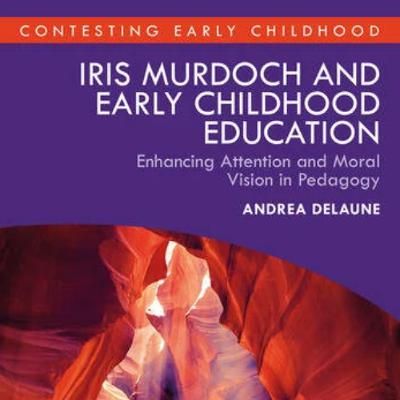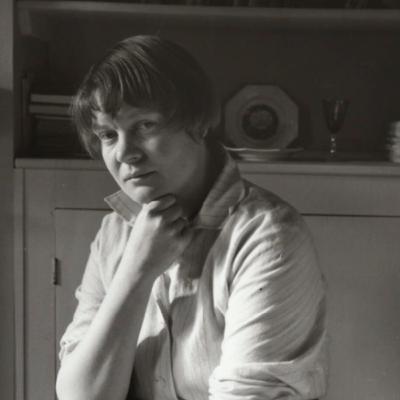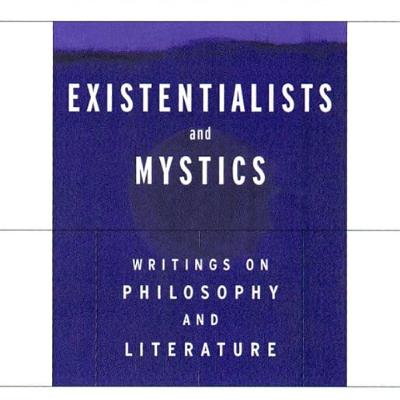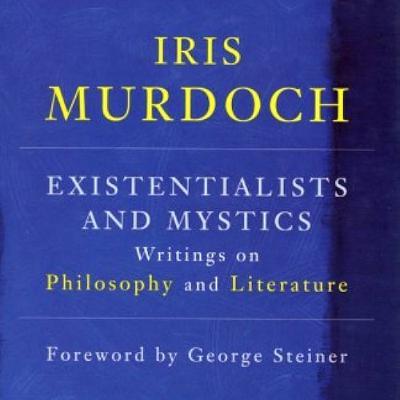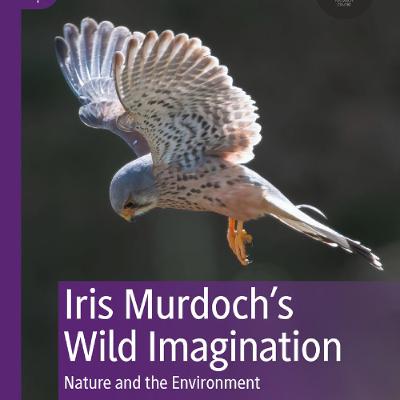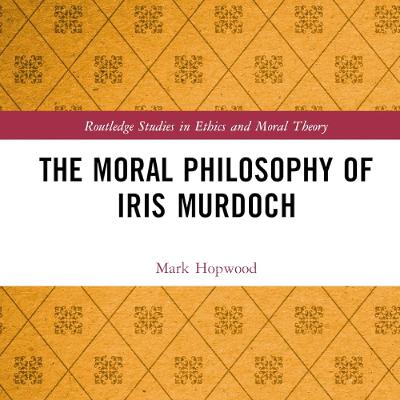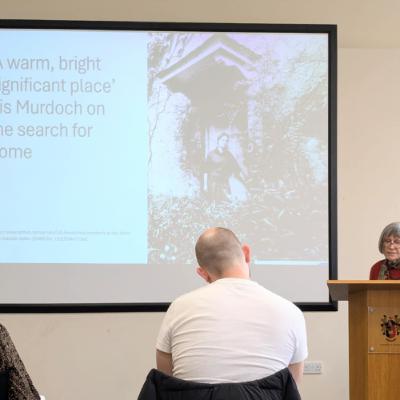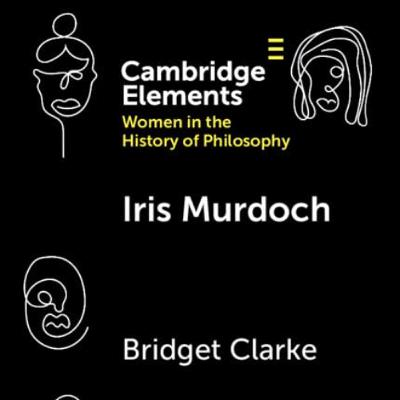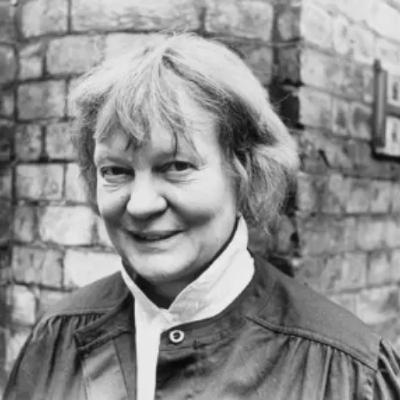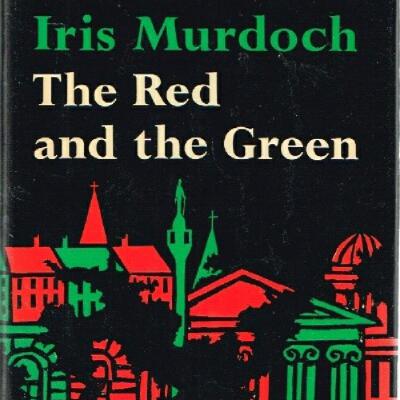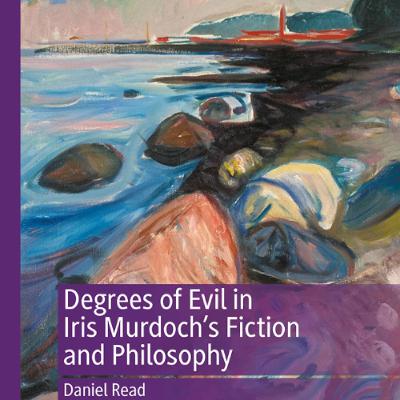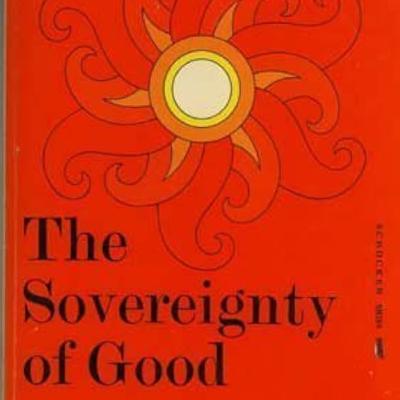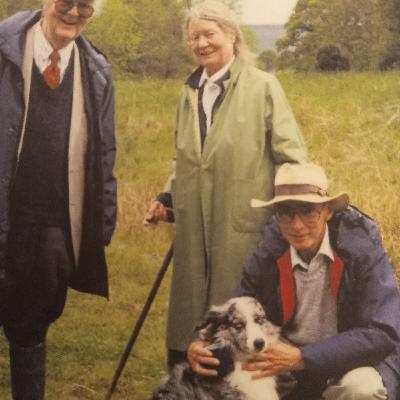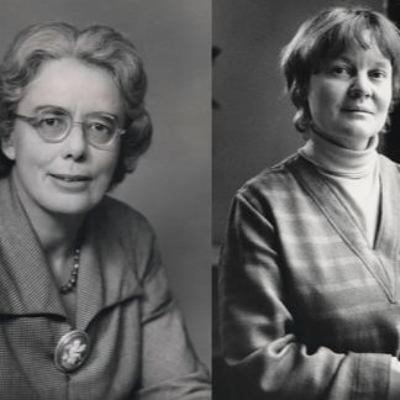Discover The Iris Murdoch Society podcast
The Iris Murdoch Society podcast

The Iris Murdoch Society podcast
Author: Iris Murdoch Society
Subscribed: 50Played: 773Subscribe
Share
© All rights reserved
Description
The Iris Murdoch Society exists to promote her work, further her philosophical vision, and enhance and extend knowledge. You can find our website here: https://irismurdochsociety.org.uk/
You can find us on Twitter - https://twitter.com/IrisMurdoch
On Facebook - https://www.facebook.com/groups/2213699051
And at Chichester University: https://www.chi.ac.uk/humanities/public-humanities/literary-and-cultural-narrative/iris-murdoch-research-centre/iris-murdoch-society
You can find us on Twitter - https://twitter.com/IrisMurdoch
On Facebook - https://www.facebook.com/groups/2213699051
And at Chichester University: https://www.chi.ac.uk/humanities/public-humanities/literary-and-cultural-narrative/iris-murdoch-research-centre/iris-murdoch-society
92 Episodes
Reverse
In this lecture, given on Monday 15th December 2025, Dr Lucy Oulton (University of Chichester), Murdoch's enduring relationship with the figure of Peter Pan is discussed: her talk is titled '‘An Ousted Gabriel’: Iris Murdoch and the Enduring Allure of Peter Pan'
Wendy and Peter Pan, a stage adaptation of the J.M. Barrie novel Peter and Wendy, embraces a key detail from Barrie’s own childhood, dealing sensitively with the topic of child loss. The play foregrounds Wendy’s attempts to come to terms with the loss of a (third) brother, while her parents are overwhelmed by grief.
Iris Murdoch’s fascination with Peter Pan is well documented. Cheryl Bove and Anne Rowe observe that she ‘most heavily depends on the Peter Pan myth […] in relationships which lack warmth, connections and love’. My talk focuses on three of Murdoch’s fictional daughters who attempt to fathom their own circumstances in a shifting state of adolescence. I explore Murdoch’s ideation of the girls in relation to this cultural icon, and her incisive understanding of what it means to grow up.
Lucy is a Associate at the Iris Murdoch Research Centre at the University of Chichester and her first monograph, Iris Murdoch’s Wild Imagination: Nature and the Environment was published earlier this year. She is an editor of the Iris Murdoch Review and has lectured intentionally on Murdoch’s life and work.
In this episode Miles is joined by Frances White and Robert Cremins - both from the Iris Murdoch Research Centre at the University of Chichester - to discuss Murdoch's final novel, Jackson's Dilemma.
Frances is the Deputy Director of the IMRC at Chichester and the author of many works on Murdoch, the most recent being the edited collection Iris Murdoch and the Western Theological Imagination (Palgrave, 2025) and Poems from An attic: Selected Poems 1936-1995 (Chatto and Windus, 2025).
Robert is a writer and was Senior Lecturer in the Honours College at the University of Houston, and the Faculty Director of Creative Works. A novelist, short story writer and literary critic, Robert has got a lifelong love of Murdoch’s fiction. He has recently co-edited North American special edition of the Iris Murdoch Review, published in November 2025, and is writing his PhD thesis at Chichester on the influence of Henry James on Murdoch.
In this episode Miles is joined by Anne Rowe (University of Chichester/Kingston), Rachel Hirschler (Kinston University) and Rosanna Hilyard (Chatto & Windus) to celebrate the publication of 'Poems from An Attic: Selected Poems 1936-1995', published today by Chatto and Windus.
https://www.penguin.co.uk/books/470920/poems-from-an-attic-by-murdoch-iris/9781784746124
ANNE ROWE is Visiting Professor at the University of Chichester and Emeritus Research Fellow with the Iris Murdoch Archive Project at Kingston University. She has published widely on Iris Murdoch, including The Visual Arts and the Novels of Iris Murdoch (2002), Iris Murdoch in the Writers and Their Work series (2019) and most recently is Co-Editor of Poems from an Attic: Selected Poems 1936-1995 by Iris Murdoch (2025).
Rachel Hirschler works at the Kingston University archives and is lead transcriber for Murdoch’s poetry and much else besides.
Rosanna Hilyard is Assistant Editor at Chatto and Windus, and has been shepherding Poems from an Attic to publication. Her fiction and non-fiction has appeared in The Isis Magazine, The Northern Echo, and several anthologies including Tactical Reading, Adrift and Outside Of Me.
In this episode Miles talks to Andrea Delaune (University of Canterbury, New Zealand) about her new book, 'Iris Murdoch and Early Childhood Education: Enhancing Attention and Moral Vision in Pedagogy' (Routledge, 2025).
https://www.routledge.com/Iris-Murdoch-and-Early-Childhood-Education-Enhancing-Attention-and-Moral-Vision-in-Pedagogy/Delaune/p/book/9781032886169
Andrea Delaune is Senior Lecturer in Early Childhood Education at University of Canterbury (Te Whare Wānanga o Waitaha), New Zealand, where she conducts research at the intersection of ethics, pedagogy and early childhood practice. Her scholarly work explores how moral philosophy—especially concepts of attention, care, and moral vision—can illuminate and revitalise the everyday practices of early childhood teaching, care and policy. One of her central studies draws on the work of Iris Murdoch, applying Murdoch’s ideas of attention and the moral imagination to early childhood contexts. Beyond her research, Delaune is actively engaged in the professional community: she serves as Co-President of OMEP Aotearoa, New Zealand (the local chapter of the World Organisation for Early Childhood Education), where she is involved in advancing children’s rights, well-being of early childhood educators, and ethical dimensions of educator-child relationships.
Iris Murdoch and Early Childhood Education: Enhancing Attention and Moral Vision in Pedagogy (Routledge, 2026), argues for a reconceptualisation of teaching as a lived philosophical practice rather than purely a technical act.
In this episode we discuss Murdoch’s conceptualisation of virtue and what it might mean to be virtuous. We’ll range across her philosophy, of course, but we’ll also have time to visit her fiction and consider if she embeds some of her ideas about virtue into her novels.
Joining Miles to discuss this fascinating topic is Tony Milligan.
Tony is a Research Fellow in Philosophy of Ethics in the Theology and Religious Studies at Kings College, University of London. And his current research, as part of the KCL (China) team and the University of Manchester (Russia) team within the Cosmological Visionaries project, takes in the ethical aspects of dialogue building between local scientists, indigenous peoples and national minorities in Russia and China in the face of climate change. The key theme uniting his broader areas of research is otherness and our shared future. This works its way into various publications on Space (other places), philosophy of love (other people), and animals (other creatures). Tony is also an Affiliate of the Lau China Institute. For many years he’s been fascinated by Murdoch’s philosophy, indeed his PhD thesis at the University of Glasgow was titled 'Iris Murdoch’s Romantic Platonism' and he’s gone on to publish widely on her work.
Welcome to a new season of the Iris Murdoch Podcast! In this episode we’re celebrating the 50th anniversary of the publication of one of Murdoch very best novels, and one of the six first-person male narrated novels, A Word Child. This is a revisit as we discussed this wonderful novel way back in 2021 – it was our ninth podcast and this episode is our seventieth! – so if you might want to catch up with that one if you love this novel. As you might expect, we also discuss a wide range of Murdoch's other novels.
Joining Miles is Frances White. Frances is the Deputy director of the IMRC here at Chichester and the author of many works on Murdoch, the most recent being the edited collection Iris Murdoch and the Western Theological Imagination (Palgrave, 2025)
And joining Frances and Miles is Liz Whittome. For many years she was the Chief and Principal Examiner of English for Cambridge Examinations. She has published several books on studying English at A-Level with Cambridge University Press. She is currently writing a monograph on Murdoch and Shakespeare.
In this lecture Miles Leeson, Director of the Iris Murdoch Research Centre at the University of Chichester, discusses Murdoch’s reception by her contemporaries and look at the lighter side of how she was lampooned, both directly and indirectly, in the work of H.E. Bates, Malcolm Bradbury, Brigid Brophy, Barbara Pym and Ian McEwan, as well as the reception of her work by Philip Larkin and Monica Jones. Whilst a good deal of this was affectionate, and some even complementary, there was also a streak of jealousy and cruelty present. As Murdoch grew in popularity, and as a public intellectual figure, this became commonplace and is part of the mythic figure of ‘Iris’ that was played out in the 2001 film, but has now has begun to fade from the public imagination. Miles’s lecture asks what it might mean for us to admire her work today in the light of these texts.
In this second episode focused on Existentialists and Mystics we’ll be reading two essays – ‘Thinking and Language’ and ‘Nostalgia for the Particular’ – together. If you’ve yet to listen to our prior episode on Murdoch earliest work on Sartre then you may wish to catch up with that, before you listen to us here.
Both essay were originally give as oral presentations. The first, ‘Thinking and Language’ came from a symposium entitled, naturally enough, Thinking and language and was part of a conversation between Murdoch, Gilbert Ryle and A.C. Lloyd in 1951. The second, ‘Nostalgia for the Particular’ was read at a meeting of the Aristotelian Society on the 9th June 1952. As both papers reference each other in their published form it seemed obvious to discuss them together on one episode.
Miles is joined by Lesley Jamieson. Lesley is an Assistant Professor and postdoctoral researcher at the Centre for Ethics as Study in Human Value at the University of Pardubice (Czechia) and her research has centred on the history of analytic philosophy (with a focus on women, especially Iris Murdoch). This work has resulted in a monograph entitled Iris Murdoch's Practical Metaphysics: A Guide to her Early Writings (Palgrave, 2023), as well as a number of articles on the philosophy of mind and philosophy of education.
Lesley's current research is an examination the practice of "public philosophy" just prior to and after the Second World War among such figures as Susan Stebbing, A. J. Ayer and Iris Murdoch.
Have you always thought you could do with some expert guidance when reading Iris’s philosophy? Well help is at hand! This episode marks the start of a new mini-series of episodes where we’ll be reading Iris’s collected essay collection – Existentialists and Mystics – with a team of excellent academics and seasoned readers, and you can join us for the experience! Each episode will focus on a small number of essays – or perhaps just one essay if it is substantial in length – and explore exactly what Murdoch was up to and how the essay fits in with her overall vision. We’ll keep in roughly chronological order, starting with her work from the 1950s and ending up in the mid-1980s with her two Platonic dialogues. Although Existentialists and Mystics doesn’t contain all of her published philosophy it’s a great place to start so, if you’ve not got a copy, you can pick one up very reasonably second-hand via this link:
https://www.bookfinder.com/search/?isbn=9780140264920&st=xl&ac=qr
In this episode we’re starting out with her earliest material on Existentialism – closely reading ‘The Existentialist Hero’ and ‘The Novelist as Metaphysician’ as well as her review of Simone de Beauvoir’s The Ethics of Ambiguity – all from 1950. The two essays were originally given as talks on BBC Radio’s The Third Programme; and are the groundwork for her first monograph, Sartre: Romantic Rationalist that would be published just a few years later in 1953.
Joining Miles is Sam Filby, currently working on his PhD thesis on Murdoch at Northwestern University, Chicago; and the current recipient of the BSH research fund. His work focuses on Murdoch’s aesthetics and moral psychology
Miles is joined by Lucy Oulton (University of Chichester) to discuss her new book, Iris Murdoch's Wild Imagination: Nature and the Environment (Palgrave, 2025).
https://link.springer.com/book/10.1007/978-3-031-87833-6
This book presents the first ecocritical study of novelist, philosopher, poet and public intellectual Iris Murdoch (1919–1999). It brings her love of the natural world into the light, arguing for its critical significance when Murdoch conveys an awareness of intricately interconnected ecologies through her work: an awareness that anticipates the motivations and concerns of modern-day environmental humanities. The book is the first of its kind to assess some of Murdoch's poems, seen as early articulation of the environmental imagination that finds recurrent expression in her novels, philosophical writings and personal journals throughout her writing life. This book offers a significant entry point for a new research direction in Murdoch studies by explicating her unique perspective on the natural world.
Lucy Oulton is a Research Associate at the Iris Murdoch Research Centre, University of Chichester, UK. She is an Editor of the Iris Murdoch Review, to which she has also contributed.
In this episode Miles is joined by joined by Mark Hopwood, Associate Professor of Philosophy, from the University of Sewanee, USA to discuss his new book – which has just been published – The Moral Philosophy of Iris Murdoch. This is his first monograph since he published the co-edited volume that he’s perhaps best known for in Murdoch circles, the magisterial Murdochian Mind in 2022. Both books published by Routledge.
https://blackwells.co.uk/bookshop/product/The-Moral-Philosophy-of-Iris-Murdoch-by-Mark-Hopwood/9780367819576
Examining the role of vision, imagination, love, goodness, and transcendence in Murdoch's work, The Moral Philosophy of Iris Murdoch presents a compelling and original argument that she is one of the major moral philosophers of the twentieth century.
In this, her first public lecture, Dr Maria Peacock discusses Iris Murdoch's search for home using examples from her novels and biography.
This lecture was given at the University of Chichester on Saturday 29th March, 2025.
In this episode Miles is joined by Prof. Bridget Clarke (University of Montana) to discuss her new book, entitled ‘Iris Murdoch’ in the Cambridge Elements, Elements on Women in the History of Philosophy series from Cambridge University Press.
https://blackwells.co.uk/bookshop/product/Iris-Murdoch-by-Bridget-Clarke/9781009358149
Bridget is Professor of Philosophy at the University of Montana and her research interests include the History of Ethics, Moral Psychology and, of course, Iris Murdoch, who she has been working on for the past twenty years or more. This new book, however, is her first monograph dedicated solely to Murdoch work.
To access Iris Murdoch's Review of Dr Zhivago - mentioned at the end of the podcast - use this link:
https://mailadminchiac-my.sharepoint.com/:w:/g/personal/m_leeson_chi_ac_uk/ESChvUwQ5xpIiacFzothi7QB8eT3VRQavDZRT83RCUuvVg?e=FEEhQe
In this podcast Miles is joined by Michela Dianetti and Lucy Elvis (both from Galway University, Ireland) discusses the role Murdoch's work can play in public philosophy. They discuss working with her philosophy, her radio play 'The One Alone', her novel 'The Unicorn', the Quartet biography 'Metaphysical Animals' and much more.
Dr Michela Dianetti is a post-doctoral researcher at the University of Galway and a CPI (Community of philosophical inquiry) facilitator. Her PhD research developed a literary ethics of attention grounded in the philosophies of Simone Weil and Iris Murdoch, applying them to the literary work of Elsa Morante. She is currently researching the influence of Weil’s and Murdoch’s philosophies on Ann Margaret Sharp’s theorization of P4C and the role of attention in CPI. mdianetti@universityofgalway.ie
Dr. Lucy Elvis teaches and researches on issues in the Philosophy of Art and Culture and the Community of Philosophical Inquiry (CPI) as a faculty member at the University of Galway. She is a founding director of Curo Thinking for Communities and has practised philosophical thinking with communities in schools, libraries, galleries, and music festivals. Currently, she is researching the CPI as a forum for practising and developing attention as described by Iris Murdoch, Simone Weil and Hans-Georg Gadamer. lucy.elvis@universityofgalway.ie
Some of the texts mentioned:
Sharp, Ann Margaret, “Self-transformation in the community of inquiry” in Gregory, Maughn, and Megan Laverty, eds. 2019. In Community of Inquiry with Ann Margaret Sharp: Childhood, Philosophy and Education. 1st edition. London New York (N.Y.): Routledge.
Mac Cumhaill, Clare, and Rachael Wiseman. 2022. Metaphysical Animals: How Four Women Brought Philosophy Back to Life. London: Chatto & Windus.
White, Frances. 2012. “A Post-Christian Concept of Martyrdom and the Murdochian Chorus: The One Alone and T.S. Eliot’s Murder in the Cathedral.” In Iris Murdoch: Texts and Contexts, edited by Anne Rowe and Avril Horner, 177–91. London: Palgrave Macmillan UK.
And some websites to check out:
https://aireinquiryandenvironment.wordpress.com/
https://www.universityofgalway.ie/colleges-and-schools/arts-social-sciences-and-celtic-studies/history-philosophy/disciplines-centres/philosophy/
In this episode Miles is joined by Ian D'alton (Trinity College, Dublin) and Frances White (University of Chichester) to celebrate the 60th Anniversary of Murdoch's ninth novel, The Red and The Green.
Ian is a visiting research fellow in the Centre for Contemporary Irish History at Trinity College, Dublin, and his most recent work is Southern Irish Protestants: Histories, Lives and Literatures was published just a few months ago. https://www.amazon.co.uk/Southern-Irish-Protestants-Histories-Literature/dp/1916742505
Frances is a Visiting Research Fellow and Deputy Director of the Iris Murdoch Research Centre at the University of Chichester, editor of the Iris Murdoch Review, and Writer in Residence at Kingston University Writing School. Her prize-winning biography Becoming Iris Murdoch was published in 2014 (Kingston University Press) and her monograph, Iris Murdoch and Remorse: Beyond Forgiving? was published in 2024 https://link.springer.com/book/10.1007/978-3-031-43013-8
You can find an excellent article on Murdoch and Ireland by Frances White and Gillian Dooley here: https://www.tandfonline.com/doi/pdf/10.1080/0013838X.2019.1672449
In this episode Miles is joined by Daniel Read (University of Kingston) to discuss his new book, 'Degrees of Evil in Iris Murdoch's Fiction and Philosophy'.
https://link.springer.com/book/10.1007/978-3-031-75841-6
We range across all of her published work - in literature, fiction and theology - and ask why the nature of evil obsessed her throughout her career.
This Keynote Lecture was given at the Eleventh International Iris Murdoch Conference at Chichester on the 31st August, 2024. Justin is Professor of Philosophy at Brown, USA.
There are philosophers who have said that late 20th century philosophical works do not need commentaries in the way that the writings of Plato and Aristotle, or Kant and Hegel do. Russell and Strawson, or Kripke and Lewis — and others at least in the English-speaking academic world — have committed themselves so much to clarity and a kind of professional *limitation* that they will have followers and opponents, but won’t need expository or explanatory commentary. But Wittgenstein is evidently an exception and so, I think, is Murdoch. What makes philosophical commentary valuable when it is? What kinds of work does it, or should it, do? Which kind of institutional structures promote one kind of writing and which another? And what kind of exception is Murdoch? These are questions, I think, worth exploring.
In this episode Miles is joined by Robert Cremins (University of Houston, Texas) and Daniel Read (Kingston University) to celebrate the anniversary of Murdoch's Whitbread Award-winning novel from 1974. They cover the culture of the 1970s, trauma, childhood, cruelty, black humour, love triangles, links to other writers, links to other novels by Murdoch and much more.
Robert is a writer and Senior Lecturer in the Honours College at the University of Houston, and the Faculty Director of Creative Works. A novelist, short story writer and literary critic, Robert has got a lifelong love of Murdoch’s fiction. He is currently working on next year’s North American special edition of the Iris Murdoch Review which will be published in the Autumn of 2025.
Daniel Read lectures at the University of Kingston and his monograph, Degrees of Evil in Iris Murdoch's Fiction and Philosophy, is due from Palgrave MacMillan in early 2025.
In this episode Miles is joined by Dr Frances White (University of Chichester) and Liz Whittome (Former Chief and Principal Examiner of English for Cambridge Examinations) to discuss dogs in Murdoch's Fiction.
The episode covers Under the Net, The Sandcastle, The Nice and the Good, The Sacred and Profane Love Machine, The Green Knight and The Philosopher's Pupil in some depth as well as discussing other Murdoch novels.
You can buy Chris Boddington's 'Iris Murdoch's People A-Z' via the society website, here: https://irismurdochsociety.org.uk/product/iris-murdoch-people-a-to-z/
In this episode Miles is joined by Prof. Larry Blum (U-Mass, USA) to discuss the intellectual and personal connections between Iris and Dorothy Emmet. This follows on from a previous episode on Emmet, which you can find in the Podcast archive.
Professor Lawrence Blum is Distinguished Professor of Liberal Arts and Education and Professor of Philosophy. His scholarly interests are in race theory, moral philosophy, moral psychology, moral education, multiculturalism, social and political philosophy, philosophy of education, the philosophy of Simone Weil, philosophy and the Holocaust, and ethics and race in film.
You can find his Stanford Encyclopaedia of Philosophy Entry on Murdoch here: https://plato.stanford.edu/entries/murdoch/
You can find materials on the Oxford Quartet, as well as Dorothy Emmet, here: https://www.womeninparenthesis.co.uk/



